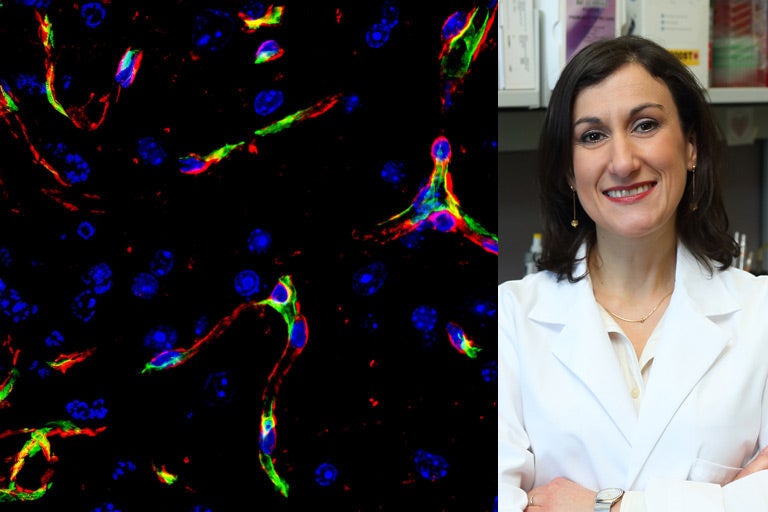UIC Researchers Working to Mitigate the Impacts of Long-COVID
Text of Article part 1

Dr. Sarah Lutz, assistant professor of anatomy and cell biology in the College of Medicine, is leading a team of researchers who have identified a mechanism that causes neurological problems in mice infected with SARS-CoV-2, the virus which causes COVID-19. When they examined blood vessels in the brains, they found a significant decrease in a signaling pathway called Wnt/beta-catenin, which helps maintain the protective blood-brain barrier. Based on that finding, the team have identified a gene therapy that stimulates the Wnt/beta-catenin pathway and provides protection against brain damage. The study is an important step toward developing a treatment for post-COVID in humans.
Text of Article part 2

Dr. Jerry Krishnan, UIC associate vice chancellor, Office of Population Health Sciences, participated on a committee of the National Academies of Sciences, Engineering, and Medicine tasked with formulating a unified working definition of Long COVID. On June 11, 2024, the committee released their report A Long COVID Definition: A Chronic, Systemic Disease State with Profound Consequences. A common and consistent definition would greatly improve diagnosis and subsequent treatment of this common and often debilitating disease. A webcast and PDF presentation are available. Dr. Krishnan has also been conducting research into Long COVID as part of the RECOVER Initiative, a nationwide network for patient-centered, inclusive and adaptive research into the long-term effects of COVID.